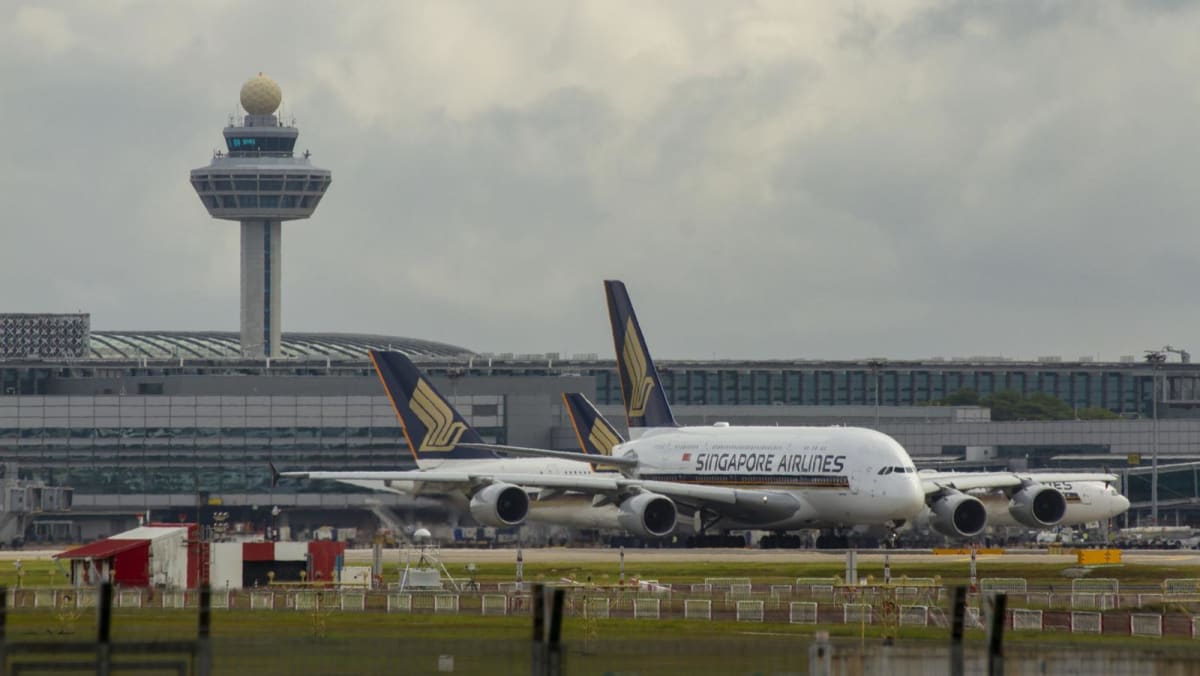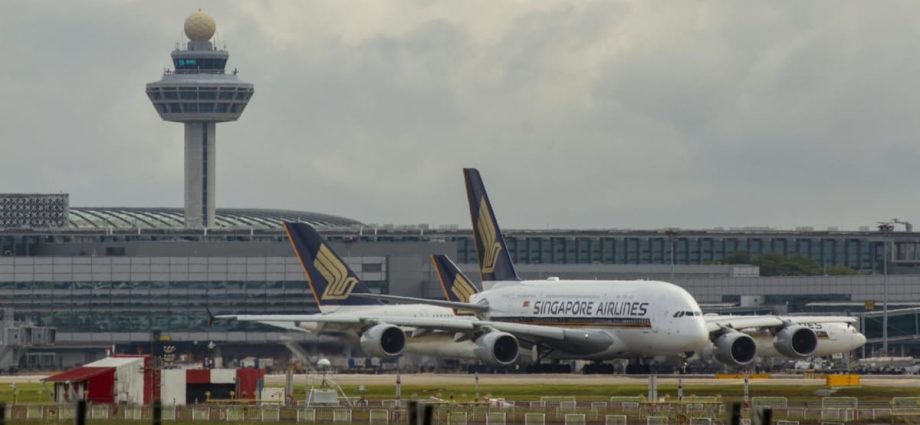
DETERMINING THE LEVY
The market for the supply of sustainable aviation fuel is “still nascent” and the price of the fuel can be volatile.
As such, CAAS will adopt a “fixed cost envelope approach” to provide “cost certainty” for airlines and travellers, the authority said.
This means the levy will be set at a “fixed quantum”, based on the sustainable aviation fuel target and projected price at that point in time.
Using the 1 per cent target in 2026 an an example, the levy will be set based on the volume of sustainable aviation fuel needed to achieve the target and the projected price of the fuel that year.
The amount collected through the levy will then be used to purchase the fuel, “based on the actual price of (the fuel) at the time of purchase”, said CAAS.
The levy will not change – even if the actual price of the sustainable aviation fuel differs from what is projected, noted the authority.
Instead, the actual uplift volume of the sustainable aviation fuel will be adjusted based on its pre-determined levy and prevailing price.
Commercial flights today can fly with a 50-50 blend of sustainable aviation and fossil jet fuel – but the industry is working towards permitting commercial aircraft to fly with 100 per cent sustainable aviation fuel by 2030.
CAAS conducted a 20-month trial beginning in July 2022 at Changi Airport, where sustainable aviation fuel was first uplifted onto departing Singapore Airlines and Scoot flights. Sustainable aviation fuel credits were also launched for corporate and individual travellers.
The trial found that adoption of sustainable aviation fuel “cannot depend on voluntary use alone” due to its high cost, stated CAAS in the blueprint.
“The current global supply of sustainable aviation fuel is less than 1 per cent of global jet fuel demand. Capacity will need to increase exponentially to meet the demand in 2050, so that the aviation sector can achieve its net zero goal,” it added.
“It is critical that we provide fuel producers with a demand signal to give them the confidence to make further investments in sustainable aviation fuel production and accelerate global sustainable aviation fuel production.”

